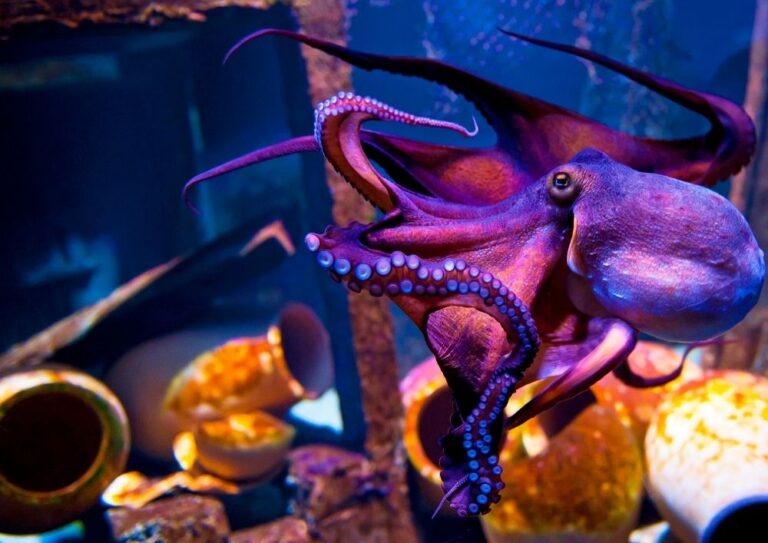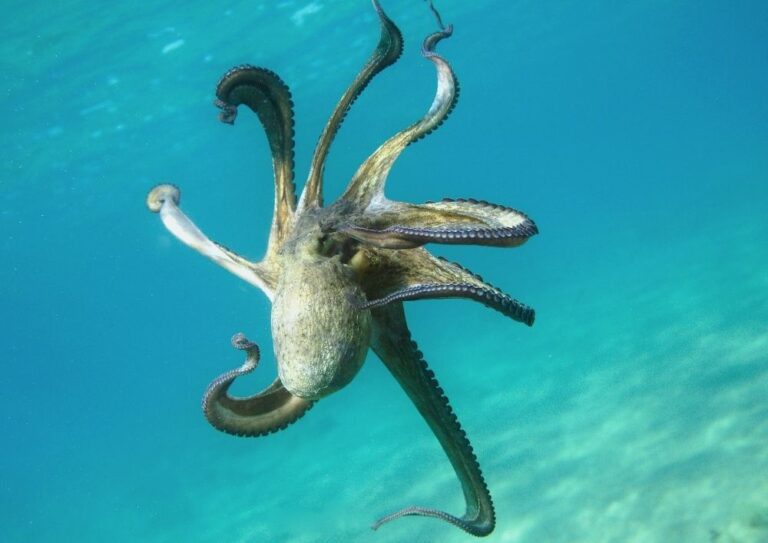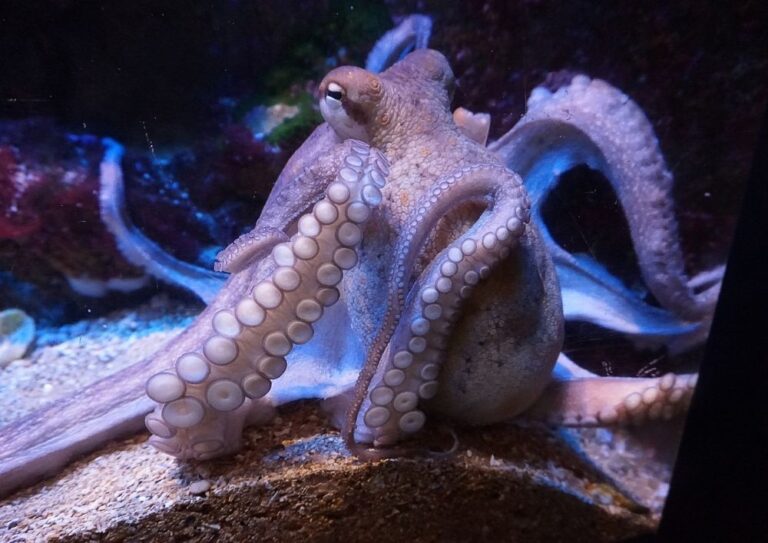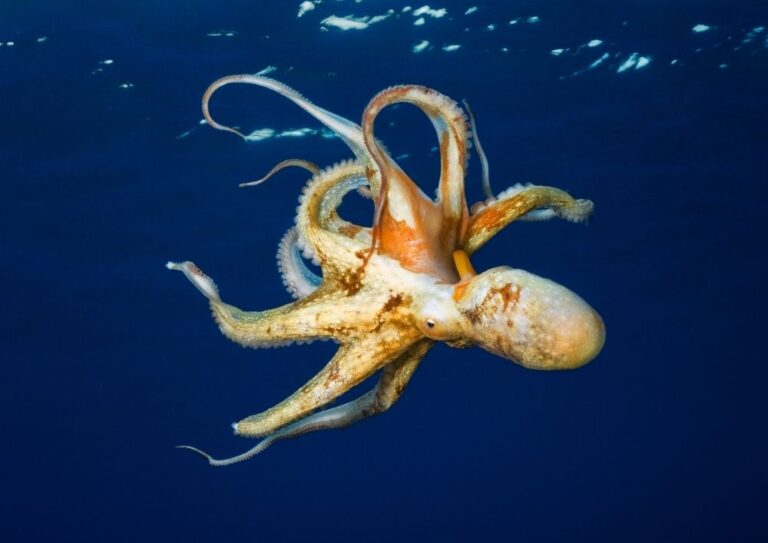Aquatic Mega-Farms: Sites of Suffering
Despite serious ethical and environmental concerns, a first-ever octopus farm for slaughter may be built in the Canary Islands, where up to 60,000 octopuses could suffer each year! A similar farm project, but for squids, is being studied in Japan. The living conditions will be just as incompatible with these animals’ fundamental needs.
Say no to importing farmed octopuses from industrial mega-farms into Canada.
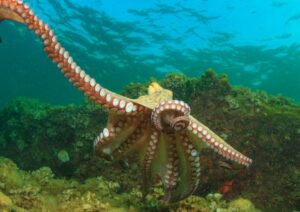
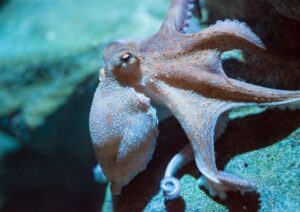
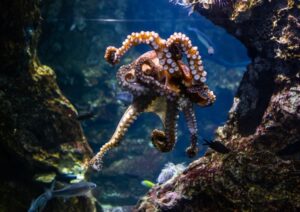
Cannibalism and psychological distress
Octopuses are rather solitary animals. However, extreme density on breeding farms will lead to aggressive behaviours that may result in injuries and cannibalism. Given their natural curiosity and tendency to explore, handle objects and control their environment, octopuses confined in cramped quarters, without stimulation and deprived of the opportunity to express their natural behaviours will become prone to psychological distress and self-harm.
Pain in life and death
— In a farm environment, octopuses are likely to be injured, either through rough employee handling or aggressive interactions with other octopuses.
— Furthermore, their natural movement pattern is completely ill-suited to small enclosed spaces. Octopuses jet-propel themselves quickly and can easily injure themselves by painfully smashing into tank or cage walls.1
— Lastly, because octopuses and other cephalopods have a complex and non-centralized nervous system, it is impossible to kill them according to humane slaughter requirements.2 For example, wild caught octopuses are usually killed by being hit on the head, having their brains cut out, being asphyxiated in a net or being frozen alive in an ice bath.
— There is currently no regulation for the treatment of cephalopods in countries where breeding farms are being considered. Given the astronomical number of these sentient beings at risk of exploitation, there is an urgent need to address this issue.
To close the door on this unethical industry, Canada must take the lead in banning the import of octopus and other cephalopods from factory farms for consumption in this country.
Protect octopuses and sign the petition tabled in the House of Commons!
Did you know?
In addition to toxic discharges of effluents into nearby ecosystems, potential farmed octopus escapes could contribute to spreading pathogens to marine wildlife and contaminate surrounding aquatic habitats.
Furthermore, farming carnivorous species is an unsustainable practice and will contribute to the pressure currently exerted on wild fish populations, in the context of a global overfishing crisis.
In the wild, octopuses naturally feed on small fishes, crabs and clams.3 A massive number of live or frozen crustaceans and fish would be required to feed these animals in captivity.
Depleting wild fish populations also reduces the amount of food available for species like penguins that rely on small fish.
→ To prevent this environmental disaster, sign the petition!
Little is known about the octopus’s immune system. Cephalopods in captivity could be vectors of multiple unknown pathogens, for which there is a lack of treatment and prevention strategies.
Octopuses are also vectors of cholera, a potentially epidemic and deadly zoonosis (a disease that also affects humans).
Large-scale aquatic farms are breeding grounds for bacteria. And since many of the antibiotic treatments needed to treat octopuses are also used to treat human diseases, mega-farms contribute to excessive antibiotic use and the emergence of multi-drug resistant bacteria, which poses a serious threat to human health.
→ Help stop potentially dangerous animal farms from being developed: sign the petition!
